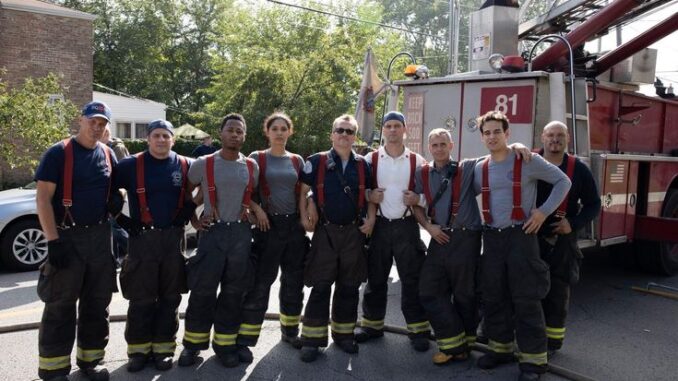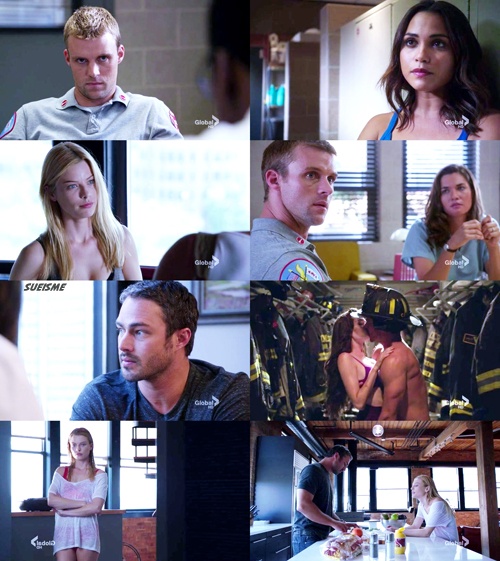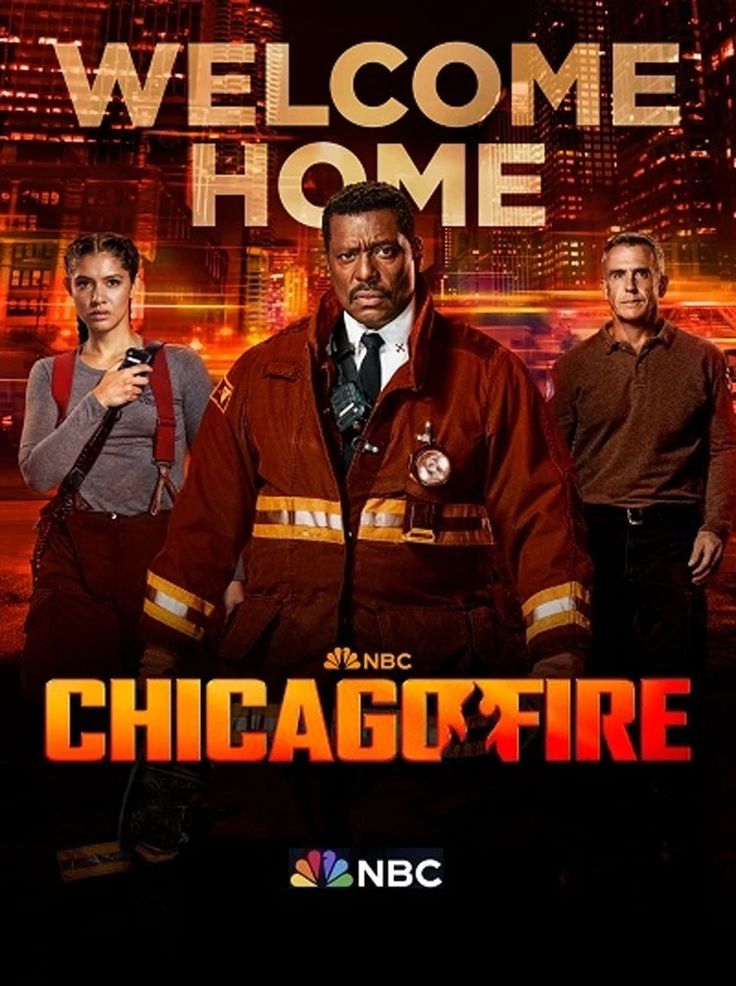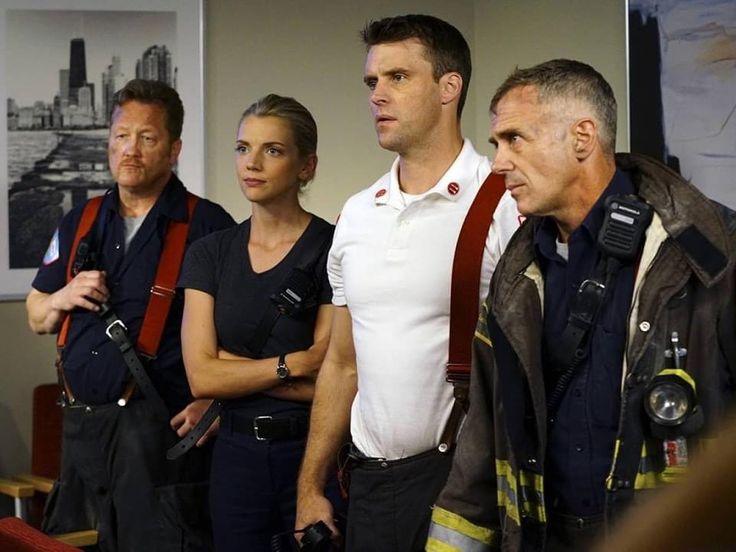
Chicago Fire, the action-packed drama series, has captivated millions with its thrilling storylines, intense characters, and high-stakes moments. Among the most intriguing and controversial figures in the series is Hank Voight, the leader of the Intelligence Unit in the Chicago Police Department. Voight, portrayed by Jason Beghe, is a complex character who brings both tension and drama to the series. In Season 1 of Chicago Fire, Voight’s actions spark animosity from Firehouse 51, especially from Matt Casey, the dedicated firefighter played by Jesse Spencer.
But why does Voight earn the ire of Matt Casey and his team? Is Voight really as corrupt as he seems, or is there more to his character than meets the eye? In this article, we will explore the reasons behind the intense hatred Matt Casey and the members of Firehouse 51 have for Voight and delve into whether or not he truly qualifies as a “dirty cop.”
Let’s unravel the mystery behind Voight’s reputation and his complicated relationship with Firehouse 51.

The Corrupt Cop Persona: Does Voight Deserve His Reputation?
At the heart of the tension between Firehouse 51 and Voight is his controversial history as a cop. Voight is infamous for his unorthodox and often morally questionable methods of handling cases. Throughout his tenure as the leader of the Intelligence Unit, Voight’s willingness to bend or break the law to get results has been a central point of conflict.
From the very beginning, viewers are introduced to Voight’s willingness to operate in the grey areas of law enforcement. Whether it’s making deals with criminals or using intimidation and force to get the information he needs, Voight often crosses ethical boundaries. This creates a stark contrast to the more rule-abiding characters in Chicago Fire, especially Matt Casey, who is deeply committed to doing things by the book.
Voight’s Dirty Secrets: A History of Violence and Corruption
To understand why Firehouse 51 hates Voight, it’s important to look at his background. Hank Voight is no stranger to the darker side of law enforcement. In fact, he’s been linked to several controversial incidents, including being involved in a murder investigation where he was accused of covering up evidence. In Season 1, it’s clear that his reputation precedes him.
Although his leadership of the Intelligence Unit is effective in solving crimes, his tactics often involve using violence and manipulation to extract information, which is a source of tension with other characters. This behavior leads Firehouse 51 to view him as a “dirty cop” who lacks integrity.
Why Matt Casey Can’t Stand Voight
Matt Casey, one of the central characters of Chicago Fire, represents the moral compass of Firehouse 51. His loyalty to his team and his dedication to saving lives through selfless service often puts him at odds with people who use power for personal gain. Casey’s disdain for Voight stems from the latter’s disregard for rules and his willingness to use brutal tactics to achieve his goals.

The Clash of Ideals: Firefighters vs. Cops
At its core, the animosity between Matt Casey and Voight can be attributed to a fundamental clash of values. Firehouse 51 is a team that thrives on saving lives, following procedures, and doing what’s right, even if it’s not always the easiest or most convenient path. On the other hand, Voight is a cop who’s willing to compromise on his ethics to get results, no matter the cost.
This clash of ideals comes to a head in several episodes of Season 1, where Voight’s actions directly interfere with the firefighters’ missions. Whether it’s Voight putting pressure on Casey or showing a lack of respect for the danger firefighters face, the friction between these two characters is palpable.
Voight’s Manipulative Behavior: A Threat to the Team
One of the key reasons why Firehouse 51 grows to distrust Voight is his manipulative nature. He’s not above using people, including the firefighters, to achieve his own objectives. In one memorable scene, Voight pressures Casey and the rest of Firehouse 51 into working with him, even though they’re uncomfortable with his methods. This manipulation only reinforces the negative image that Firehouse 51 has of him.
Voight’s Involvement with Criminals: A Dangerous Partnership
As the leader of the Intelligence Unit, Voight’s connections to the criminal world are unavoidable. He often makes deals with criminals to gather information or keep a lid on investigations, which only fuels the belief that he’s corrupt. While some may argue that this is part of his job, the blurred lines between right and wrong raise serious concerns among Matt Casey and others at Firehouse 51.
In Season 1, Voight’s alliances with criminals become a point of contention for Casey, who sees this as a betrayal of the values he holds dear as a firefighter. Firehouse 51, which prides itself on protecting people and standing up for what’s right, can’t reconcile Voight’s actions with their own code of honor.
The Complexity of Voight’s Character: Is He Just Misunderstood?
While it’s easy to label Hank Voight as a “dirty cop,” the truth is that his character is more complex than that. Voight’s willingness to bend the rules is often portrayed as a necessity in a city plagued by crime and corruption. He operates in a morally grey area where the lines between right and wrong aren’t always clear.
A Man Torn Between His Duty and His Morality
Voight’s actions are often driven by a desire to protect his team and keep the city safe, even if it means making tough decisions that others might not agree with. In this sense, Voight is a character who believes that the end justifies the means, even if it means walking on the wrong side of the law.
However, this philosophy is a source of deep internal conflict for him. There are moments when Voight shows vulnerability, especially when it comes to his family and the people he cares about. This humanizes him to a degree, suggesting that his “dirty cop” persona is not as black and white as it seems.
The Turning Point: Voight’s Relationship with Firehouse 51
As the series progresses, the relationship between Voight and Firehouse 51 begins to evolve. While the animosity remains, there are moments where Voight’s true motivations come to light. His complicated relationship with Casey and the team is built on mutual respect, even if it’s not always explicitly stated.
In later seasons, Voight’s actions often show that he is willing to make sacrifices for the greater good, even if it means breaking the law. This adds depth to his character and opens up new possibilities for understanding why he does what he does.
Conclusion: Is Voight Really a Dirty Cop?
In conclusion, Hank Voight is a multifaceted character who defies easy classification. While his methods are often morally questionable, it’s important to remember that he operates in a world where the rules are often bent or broken in the pursuit of justice. Matt Casey and Firehouse 51’s disdain for Voight is understandable, given his manipulative and unorthodox approach to law enforcement. However, as the series unfolds, Voight’s complexity as a character begins to shine through, offering a deeper understanding of his motivations.

Voight is not simply a “dirty cop” — he is a man who walks a fine line between right and wrong, and his actions are often driven by a desire to protect his team and the city. While his tactics may not always be commendable, his commitment to getting results and his willingness to make difficult choices make him one of the most compelling and complex characters in the Chicago Fire universe.
